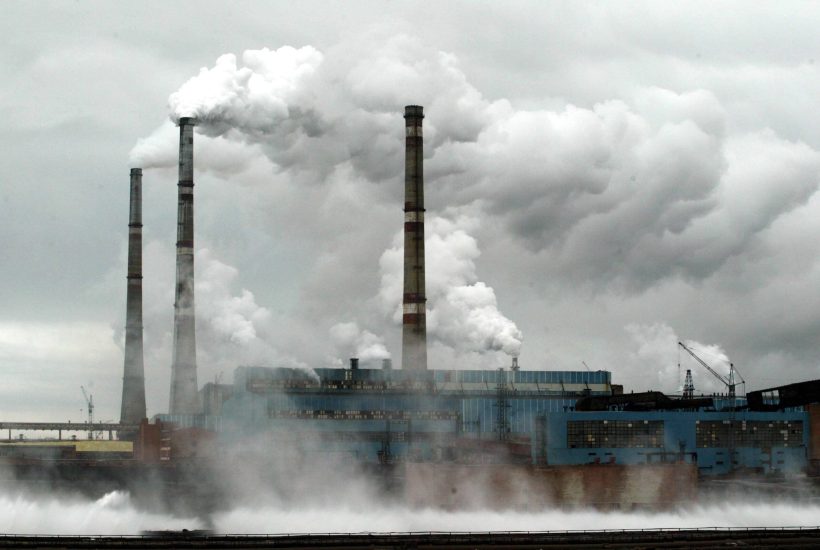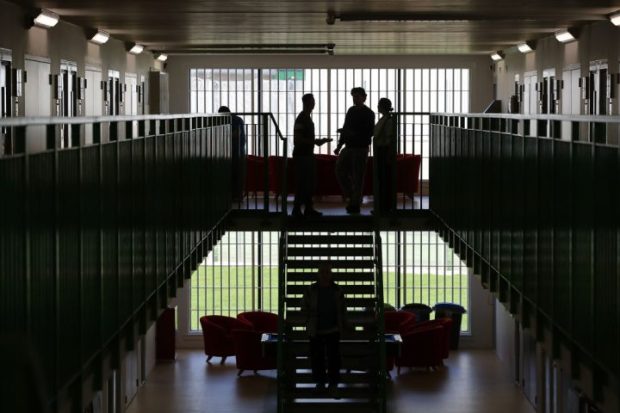Chelyabinsk is one of the most polluted places in the world. On 29 September 1957, an explosion ripped through the nearby Mayak nuclear plant — which processed plutonium for the Soviet Union’s atomic bombs — casting a cloud of highly radioactive debris across the central Russian region. Despite communist officials keeping the disaster tightly under wraps, tens of thousands of people were, eventually, evacuated from the worst-hit villages, and vast swathes of the surrounding area have been closed to the public.
More than half a century on, the nuclear fall-out is now the least of the ecological worries. Home to over a million people, Chelyabinsk has been found to have the dirtiest air of anywhere in Russia, with the government warning that high levels of polluting gases could cause health problems. It’s easy to see why — trains rolling into the city’s central station must first pass by dusty black mountains of coal, which power the factories that dot its landscape.
However, workers don’t just burn coal here, they mine it and export it too. Much of it is loaded onto wagons and trundles another 1,100 miles eastwards to China. Business is booming — in the first half of this year alone, exports to the country were up 43 per cent, with Beijing hooked on fossil fuels for the majority of all its energy needs.
But Russia’s Vladimir Putin and China’s Xi Jinping have avoided the COP26 conference in Glasgow. Never missing a chance to show up his rivals, in a speech on Tuesday US President Joe Biden said that the pair had ‘walked away’ from the ‘gigantic issue’ of climate change, accusing both the world’s largest country and its most populous of ducking their responsibilities.
Indeed, Putin has a history of playing down fears of environmental catastrophe, famously quipping in 2003 that an increase of a few degrees in average temperature would simply save Russians cash on fur coats. He also argued that global warming can’t be halted, and the world must simply learn to live with it. Since then, though, the Russian leader has undergone something of a transformation.
Earlier this year, he gave a full-throated warning that freak floods and colossal wildfires hammering regions across Russia were down to the effects of climate change, hitting his country worse than others. In 2016, an unexpected and fatal cluster of anthrax infections in Siberia was chalked up to thawing permafrost releasing frozen bacteria that had laid dormant for decades. Entire towns and cities are built into that permafrost, and their foundations are now melting.
Now Putin is acting. Just days before the start of COP26, Moscow unveiled its new climate change strategy, aiming to become carbon neutral by 2060. So, despite Biden’s condemnation, the reason Putin has stayed home can’t just be put down to apathy. Russia is currently in the middle of a coronavirus crisis, with officials reporting record infections and deaths, as older citizens stubbornly hold out on vaccines. Putin has left the country only once in the last 18 months to discuss nuclear weapons with Biden in Geneva. The Chinese premier has similarly cut back on all foreign visits since the first cases of Covid-19 were detected in Wuhan. Both have sent delegates to COP26, as well as making optimistic speeches from afar.
At the same time, it is clear neither seems to have made the summit a priority. And without Russia and China on board, any hopes of making real progress are likely to be limited. Both nations will say that, while they are responsible for a significant share of CO2 emissions, no country has had a greater cumulative impact on the environment than the US. Beijing may burn more coal than anyone else, but its carbon-hooked heavy industry has become the largest producer of solar panels in the world. Moscow has similarly set its sights on becoming a major player in the electric cars and rechargeable batteries markets, as part of efforts to diversify away from the oil and gas it pumps to Western Europe.
Nikolai Patrushev, the head of Russia’s National Security Council, last week blasted the EU for outsourcing manufacturing of environmentally-friendly technology, then introducing new emissions taxes on the countries that deliver on it. ‘Making solar panels and the extraction of rare metals required for their production is quite energy-consuming and is mostly done by nations that use coal power plants,’ he said. Officials warn that Moscow stands to lose nearly a billion pounds under a new tariff scheme being introduced by Brussels to punish polluters, even if part of that pollution is from fulfilling EU nations’ demands for green tech.
It is little wonder then that both Putin and Xi have been sceptical of the plans put forward at COP26. In principle, neither are against slashing CO2 emissions, but the pair clearly feel that some solutions put forward by their western counterparts will disproportionately hit them while sparing the nations that depend on their products and fuel. Until that changes, and the political standoff between East and West fades away, the chances of genuine global cooperation are slim. Chelyabinsk will keep digging up coal, while China keeps burning it.
Got something to add? Join the discussion and comment below.
Get 10 issues for just $10
Subscribe to The Spectator Australia today for the next 10 magazine issues, plus full online access, for just $10.




















Comments
Don't miss out
Join the conversation with other Spectator Australia readers. Subscribe to leave a comment.
SUBSCRIBEAlready a subscriber? Log in